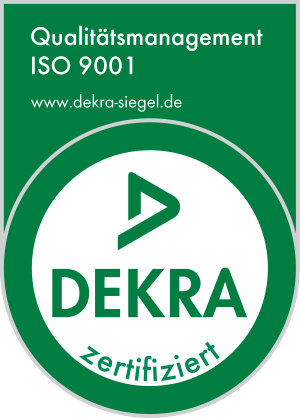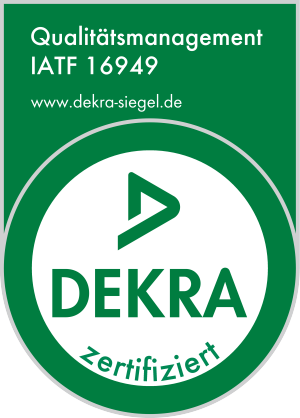Prototyping is a crucial step in the development of new products. It enables companies to visualize their ideas, test functionality and identify errors before series production begins. A prototype serves as a basis for design improvements and fine-tuning of components. By using the most modern technologies and materials, prototypes can now be manufactured quickly and precisely.
Why is choosing the right prototyping supplier important?
Choosing the right prototyping supplier is crucial to the success of your project. An experienced supplier can help you turn your design ideas into reality and deliver high-quality prototypes. A good supplier will have extensive knowledge of various manufacturing technologies and can help you choose the best approach for your project.
Advantages of a prototype construction supplier from Germany
Choosing a prototype construction supplier from Germany offers a variety of advantages. Germany is known for its high-quality manufacturing and precision engineering. Suppliers from Germany have a long tradition in the production of technical products and have extensive experience and know-how. The German standards in terms of quality and reliability are recognized worldwide.
Factors in choosing a prototyping supplier
There are several important factors to consider when selecting a prototyping supplier. First of all, it is important that the supplier has extensive experience and expertise in prototype development. The supplier should also have modern technologies and a wide range of manufacturing capabilities to meet your needs. Other important factors include availability of materials, delivery time and cost.
Prototyping suppliers and their capabilities
Prototyping suppliers offer a variety of capabilities and services to meet the diverse needs of their customers. Here are some of the most common prototyping supplier capabilities:
- 3D printing: Prototyping suppliers offer advanced 3D printing technologies to produce high-quality and precise prototypes.
- CNC processing: With modern CNC machines, prototyping suppliers can produce complex parts with high precision.
- Injection molding: Prototyping suppliers offer injection molding technologies to create prototypes from plastic.
- Metalworking: Prototyping suppliers have advanced metalworking capabilities such as turning, milling and grinding.
Materials and technologies in prototype construction
Prototyping suppliers use a variety of materials and technologies to create prototypes. Here are some of the most common materials and technologies used in prototyping:
- Plastics: Prototyping suppliers use a variety of plastics such as ABS, PLA and nylon to make prototypes.
- metals: Metallic materials such as aluminum, steel and brass are often used for making prototypes.
- Additive manufacturing: Additive manufacturing, also known as 3D printing, enables prototyping suppliers to produce complex shapes and geometries.
- CNC processing: CNC machining is a precision manufacturing technology that prototyping suppliers use to produce high-quality parts.
The process of building prototypes
The prototyping process involves several steps, from idea generation to prototype completion. Here is an overview of the typical prototyping process:
- Ideation: In this phase, ideas are collected and concepts are developed.
- Design and modeling: The design is implemented into 3D modeling.
- Material selection: The materials for the prototype are selected.
- production: The prototype is manufactured, either through 3D printing, CNC machining or other manufacturing technologies.
- Testing and evaluation: The prototype is tested and evaluated to ensure it meets the requirements.
- Design improvements: Design improvements are made based on the test results.
- completion: The final prototype is manufactured and prepared for series production.
Tips for working with a prototyping supplier
Working with a prototyping supplier requires good communication and a clear understanding of the requirements. Here are some tips for working with a prototyping supplier:
- Clear communication: Make sure you communicate your needs and expectations clearly.
- Regular updates: Ask for regular updates on the progress of the project.
- Clear agreements: Make sure all agreements and deadlines are recorded in writing.
- give feedback: Provide regular feedback to ensure the prototype meets your needs.
Conclusion
Choosing the right prototyping supplier is crucial to the success of your project. An experienced supplier from Germany can help you produce high-quality prototypes and turn your design ideas into reality. When selecting a supplier, consider important factors such as experience, expertise, manufacturing capabilities and cost. By working well with the supplier, you can ensure that your prototype meets the requirements and your project progresses successfully.









Leave A Comment